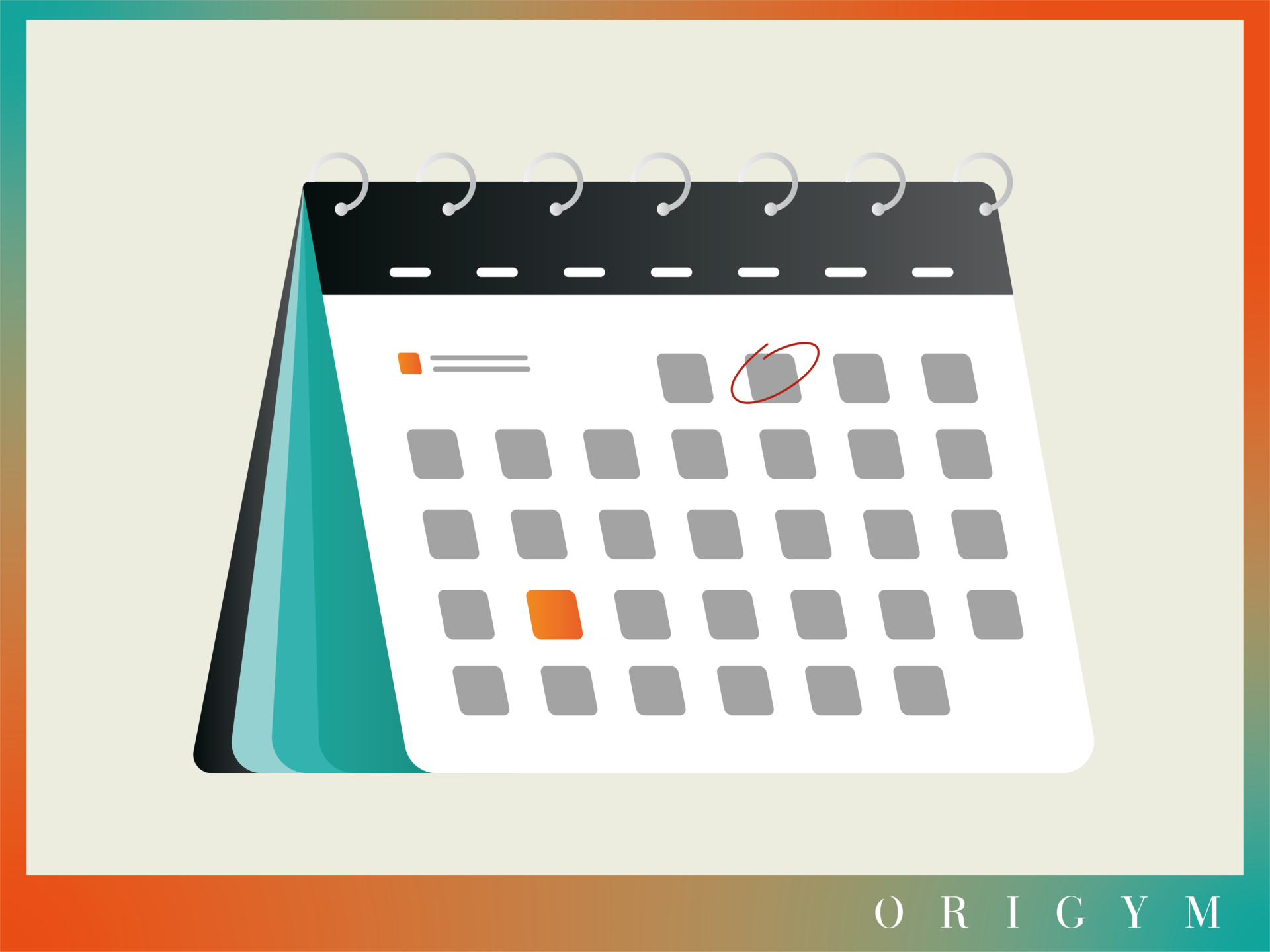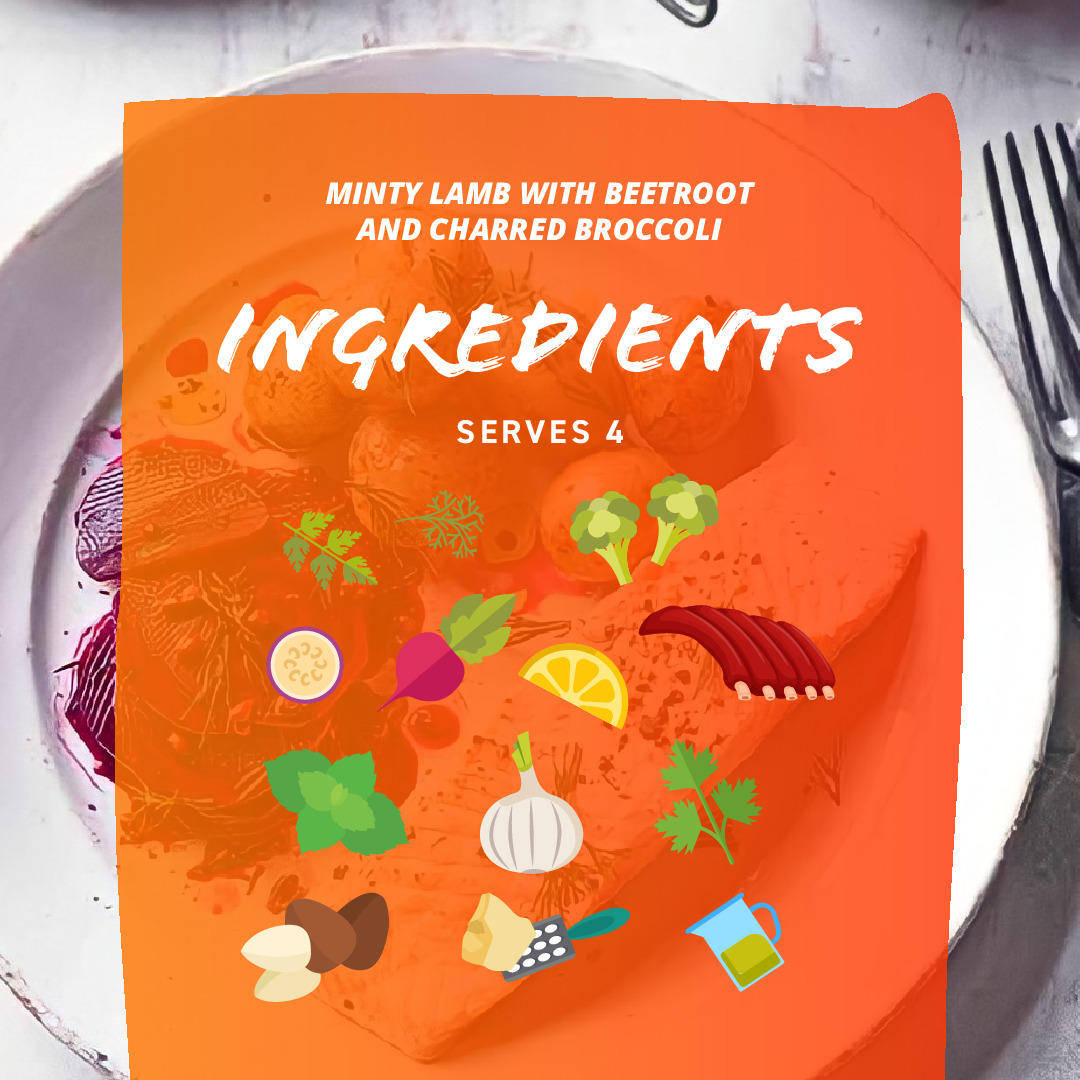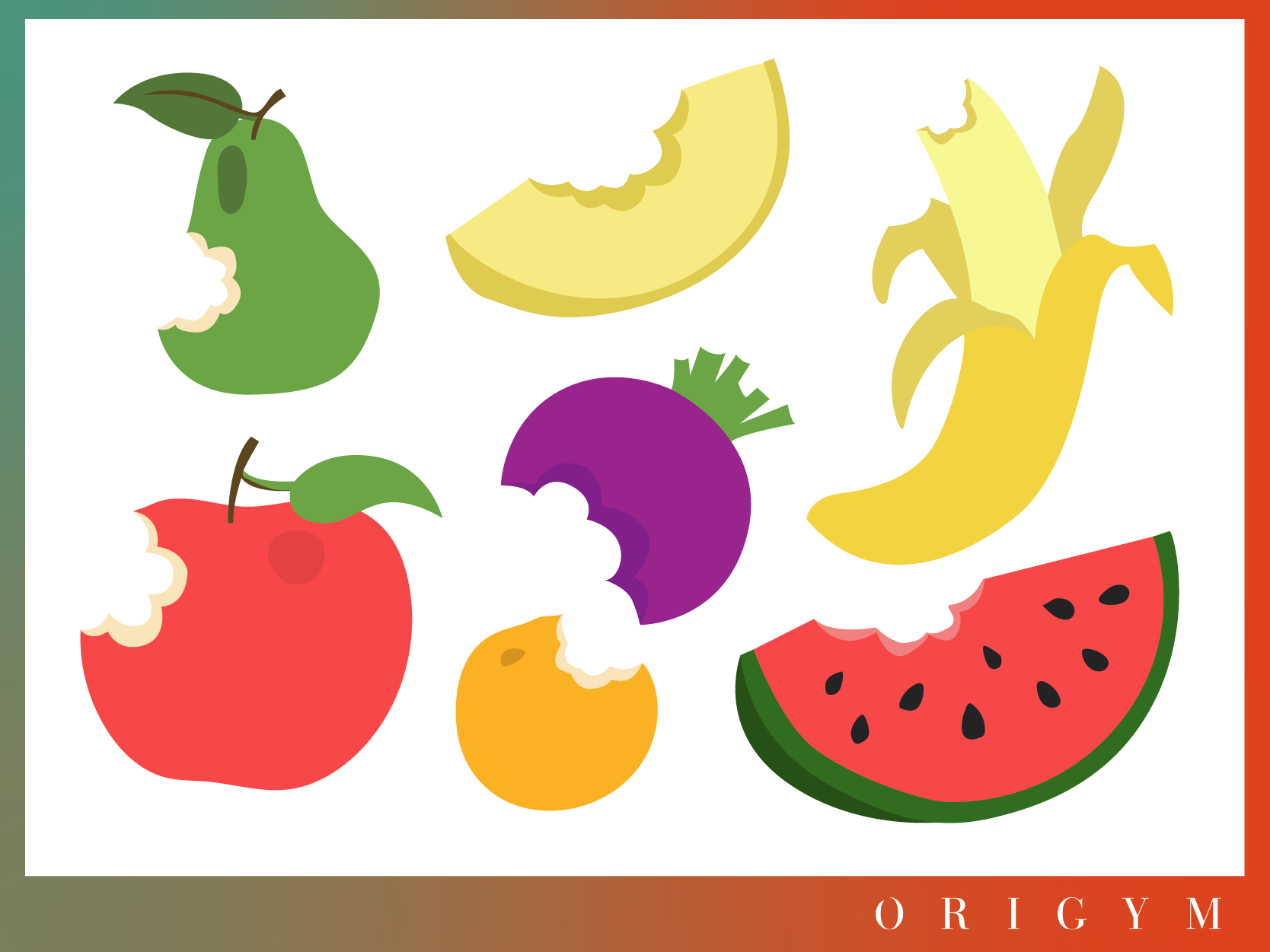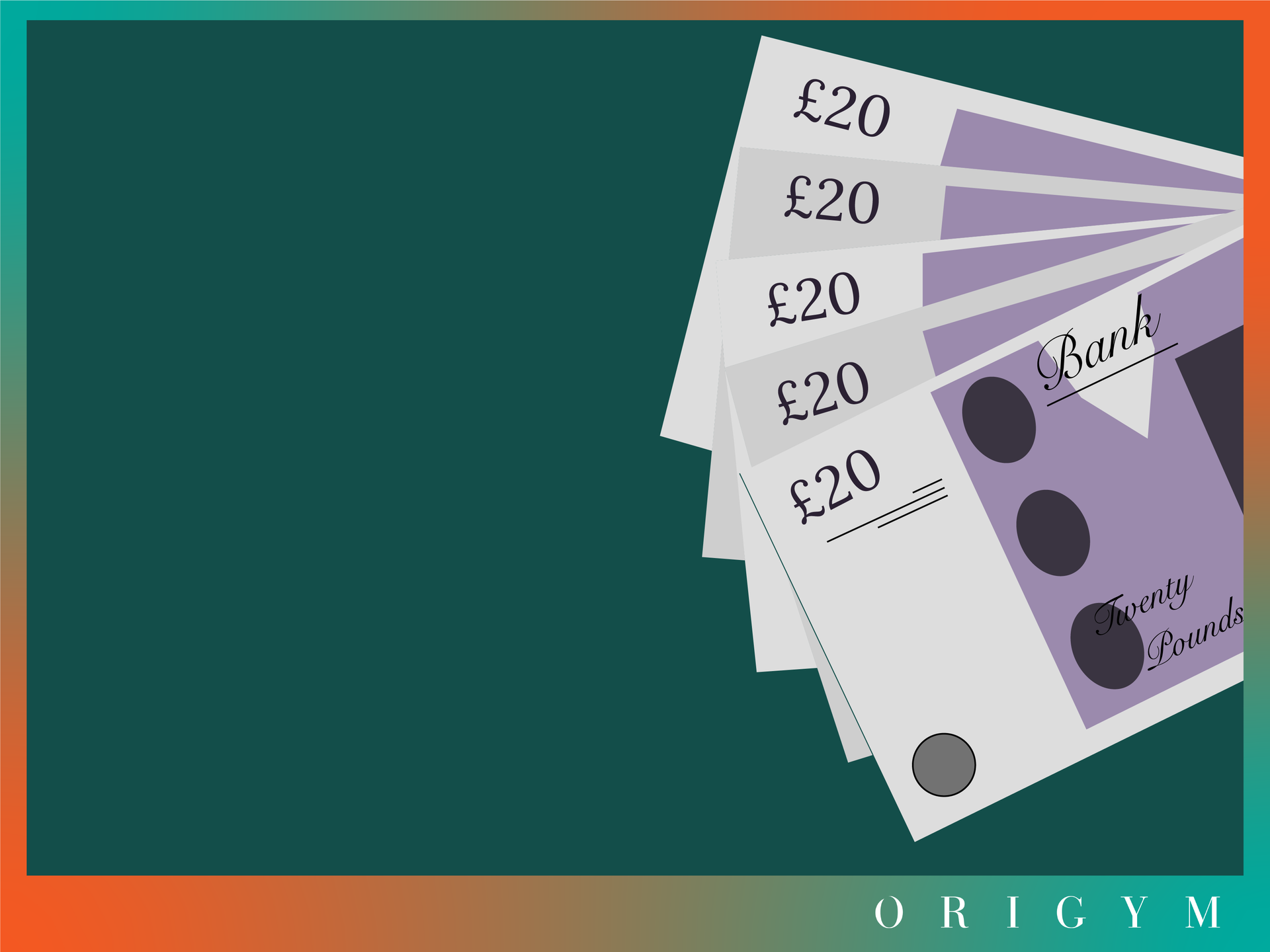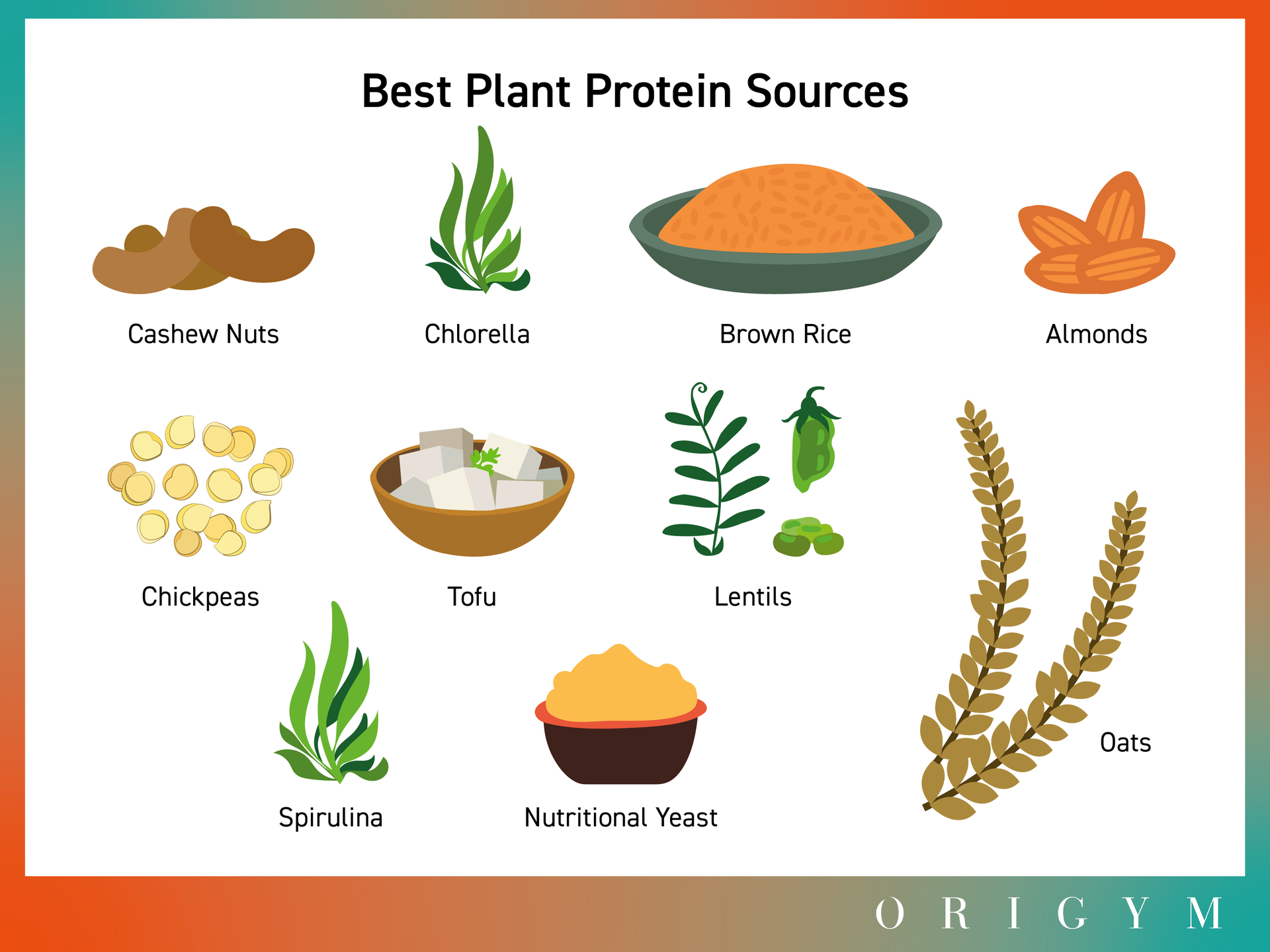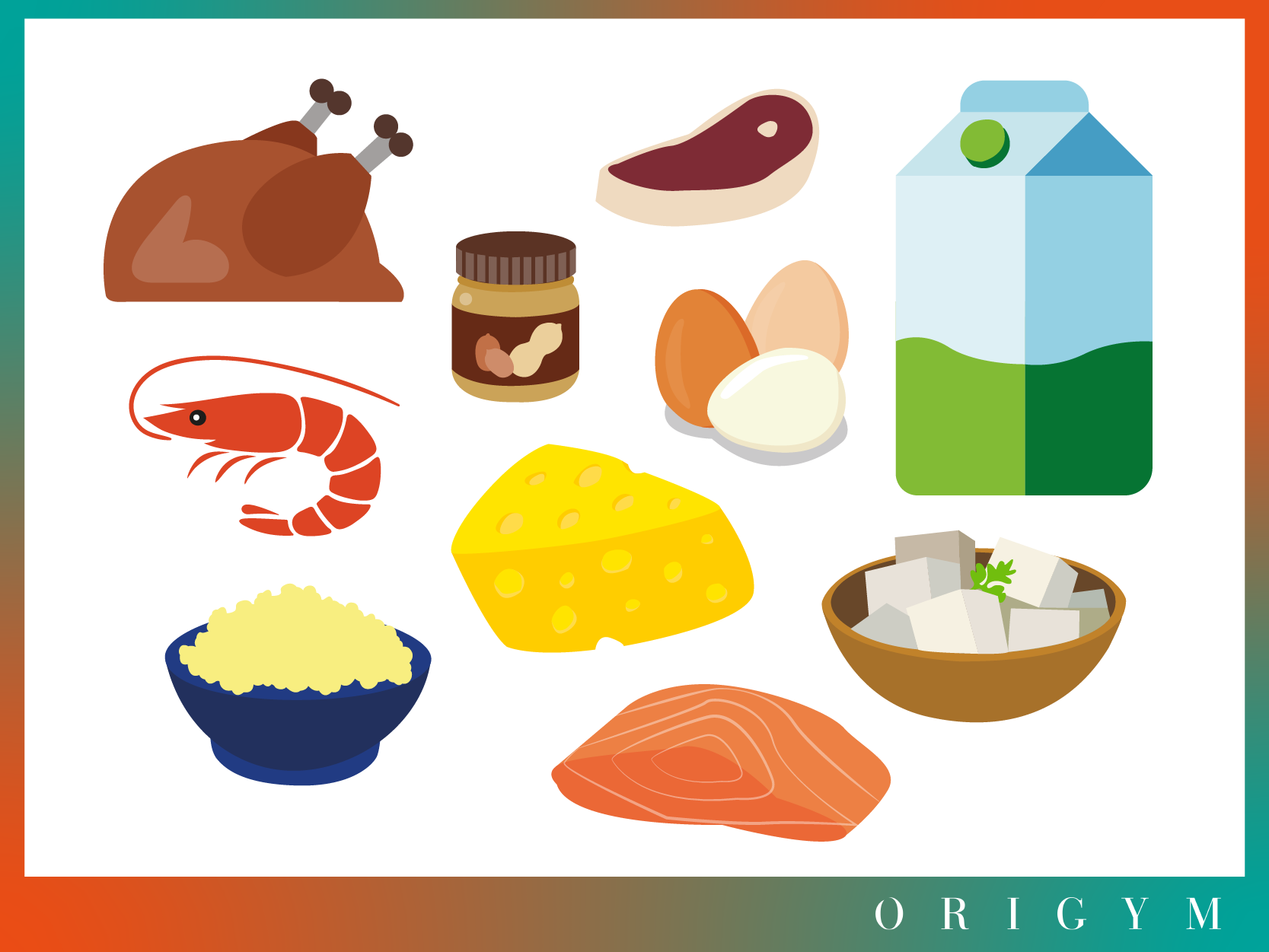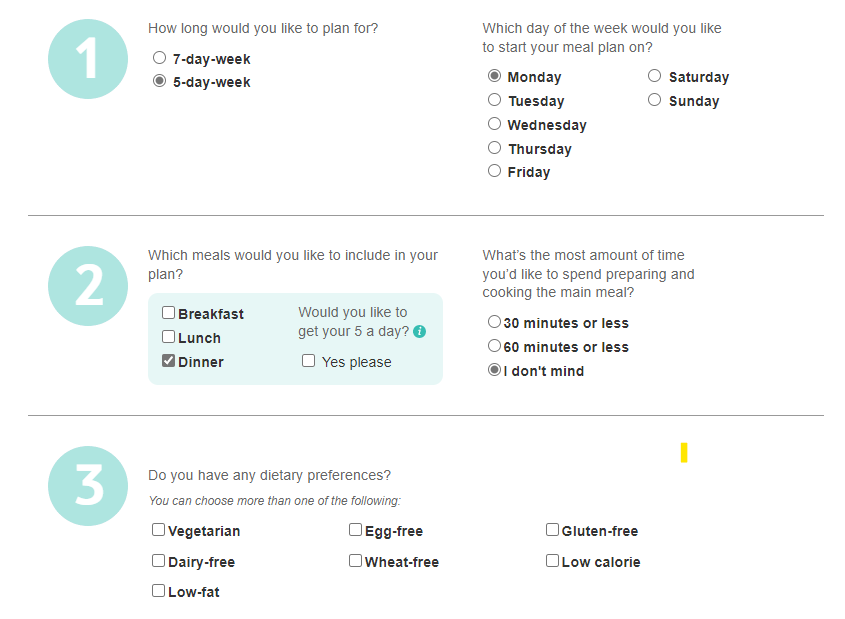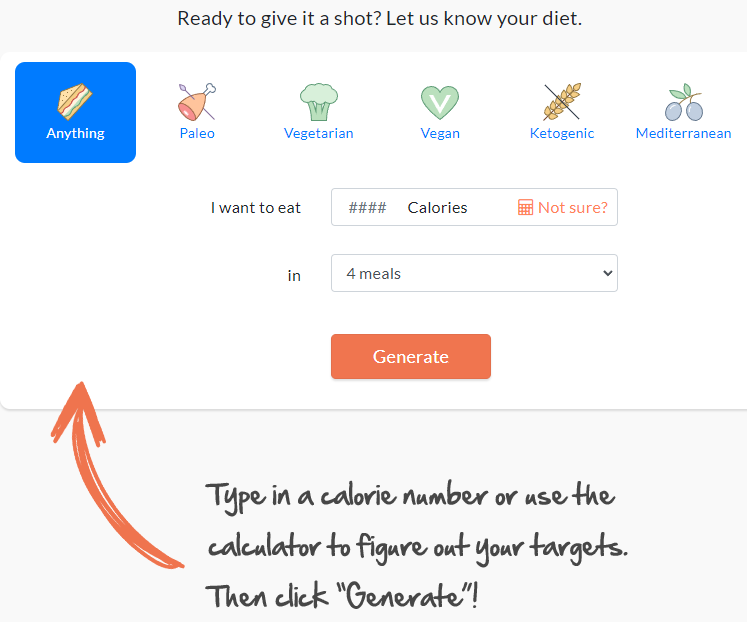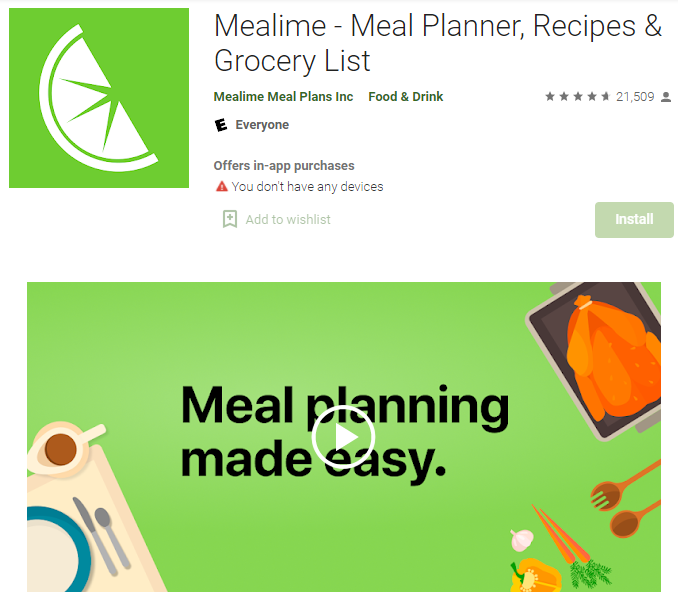By asking ‘how to make a meal plan’, you’re already on the right track to a healthier lifestyle. While it may seem a daunting task at first, the results of planning meals will provide you with plenty of great benefits and can help with training goals.
Contents:
- 6 Steps For Planning Meals
- Reasons To Make A Meal Plan
- What To Consider When Planning Meal
- Effective Tools For Planning Meals
- FAQ
If you’re looking to pass on your meal plan tips and nutrition expertise in a more formal way, completing a specialist Level 5 Sports Nutrition Course provides the ideal first step on your journey.
You’ll be able to build upon your existing knowledge of diet and wellbeing, and apply that to a career working alongside athletes, clients, and those at the very peak of their physical fitness.
6 Steps For Planning Meals
Meal planning doesn’t have to be a stressful situation. To help keep the process as simple as possible, follow our step by step guide to make your meal planning goals a success!
#1 – Check Your Schedule
The first thing you need to do when asking ‘how to make a meal plan’ is review your schedule. You need to figure out when you will cook so you can decide which recipes will work best on certain days.
Having the time and energy to cook is important when creating weekly meal plans. The last thing you want is to be planning more time consuming meals on days when you’re home late or feeling too drained to cook a certain meal.
Even if you choose one day to prepare meals for the whole week, this still needs to be a period of time you can keep free and dedicate to cooking.
This is also when you can see what style of meal planning you want to have. Some questions you should ask yourself are:
- Do I want quick meals and recipes to cook during weeknights?
- Will I prefer to cook once and have the same meals for the rest of the week?
- Would I rather use a slow cooker recipe and batch cook while I do other tasks?
These questions will also help you later when deciding on what recipes you want to cook.
The most important thing to do is locate some gaps in your schedule and essentially view these as ‘appointment’ times for you to cook.
A good idea is to get a calendar or weekly planner. This can either be physical or digital, as long as it can be used in a visual way for you to see exactly what you need to do.
Writing tasks down can be a great way for them to stick in your mind, and having a calendar set up in your kitchen will help remind you what you need to be cooking or eating on which particular day.
#2 – Search Your Cupboards For Meal Plan Ingredients
To save some money when creating weekly meal plans, you should search your kitchen cupboards, pantry, and refrigerator to see if there is anything available to start creating your meals with.
Check their expiry dates to see if there are any that need to be used up This can also help influence the recipes you decide on as you can build them some meals around the ingredients you already have available.
Foods that have a long shelf life include:
- White rice
- Oats
- Pasta
- Grains
- Dried beans (like kidney or black beans)
- Lentils
Items such as pasta and rice are inexpensive, and can form the basis of many healthy meals.
Checking what food you already have available is great for deciding what meals you want to cook, as you can determine what meals you already enjoy and plan from there.
Something to keep in mind is the difference between a best before date and an expiry date. A best before date is about the quality of a product, not safety. Food is perfectly safe to eat after it passes this date, it just won’t be as fresh.
Use-by dates are based on safety and must be consumed before or on the date that is printed on the packaging. After this date passes, don’t eat, freeze, or cook this food!
However, products such as meat and milk can be frozen before the use-by date and still be used.
—-
Enjoying this article so far? Check out these ones for some more inspiration:
- Can Personal Trainers Give Nutritional Advice?
- Pros and Cons of Being a Nutritionist in 2021
- How To Write A Nutrition Business Plan
#3 – Choose Your Recipes
If you did manage to locate some frozen or refrigerated ingredients while searching your kitchen, it’s important to have these readily available if their shelf life is limited.
When beginning to plan meals, it’s a good idea to stick with foods you’re already familiar with. You should also decide whether you’re going to plan your own meals or if your family is going to join in. If so, you’ll have to pick recipes you all enjoy.
You could try household favourites or if you really enjoy cooking, improvise without a recipe. Try to add new variations a couple of times a week by mixing up flavours or adding different ingredients.
Try shaking your diet up with some of the best metabolism boosting foods or best foods for energy, especially if you’re looking to achieve your fitness goals.
There’s no point experimenting with recipes, only to prepare a list of meals and find you don’t like most of them. This will be a waste of time and will likely put you off meal planning altogether.
Something to consider is to plan at least one meatless day a week. By doing this, you could potentially reduce the risk of cancers and heart disease by avoiding processed meat.
If lacking protein for a day is a concern, you can still receive it from products such as:
- Eggs
- Tofu
- Beans
- Lentils
- Peanut butter
There are plenty of vegan diet benefits and many alternatives to meat so you can still receive enough protein when working out.
You may also want to avoid recipes that require specific or expensive ingredients. This method of planning meals should be saving you money, so avoid recipes where you have to buy things once and don’t use them again.
However, if it’s a recipe you really want to try, you could make it but leave out that particular ingredient or substitute it with something else.
It’s also important to consider seasonal meals as certain fruits and vegetables such as strawberries and blueberries are more expensive if they’re not in season, particularly in winter.
Something to keep in mind is that it’s perfectly fine for you to have the same meal a few times a week. Don’t feel you need to find a unique recipe every day of the week!
#4 – Create A Meal Plan Shopping List & Shop!
Once you’ve settled on a few different recipes, it’s time to create your list. Most of the time, people will often have a shopping list in their head, only to arrive home and find they’ve forgotten things off their list.
You can create a list on your phone or simply write it down, crossing each item off when it’s in your basket – this way, you know for certain you definitely have it.
All of this should be saving you time. The last thing you want is to be taking multiple shopping trips a week because you keep forgetting things!
When you start buying the same kinds of ingredients each week and familiarize yourself with a list, your trips will be quicker.
Before you head out to the store, it may be worth double checking you didn’t write down something you already have in, especially if it’s something refrigerated.
When you’re shopping, stick to your list as close as possible but still try to remain flexible. Don’t become frustrated if you can’t find a particular item or it’s out of stock – simply substitute it with something similar.
#5 – Cook & Repeat…
Once you’ve brought your ingredients home, it’s time to start cooking! Depending on what day you do your food shopping, you may decide to prep if you know you’re going to be busy throughout the week.
If you’re free on the weekend, it may be an idea to go shopping on a Sunday so you have the day to prepare for the week ahead.
This could be simple things such as:
- Chopping vegetables
- Measuring spices
- Making packed lunches
- Dicing fruit portions
You could even just prepare some simple snacks, anything that saves you a bit of time during weekday evenings.
Some people even like to prepare all their meals for the week by batch cooking, rather than doing it each day.
Another thing to keep in mind is that while you should try and stick to your meal plan, unexpected things can often happen.
This means you should remain flexible and have some back up meals available just in case things happen beyond your control and you have to prepare something quick and easy.
Reasons To Make A Meal Plan
Creating weekly meal plans may seem overwhelming at first, but it doesn’t need to be! There are many reasons why you should meal plan – benefits you can experience as soon as you start.
#1 – Meal Planning Ensures Healthier Eating
One of the main reasons people ask how to make a meal plan is because they want to eat healthier foods, and better control their portion sizes.
It’s understandable that you would, especially when there are plenty of benefits of healthy eating for the body and mind!
Asking how to build a meal plan for weight loss means you’re already on the right track. Planning what to eat every day is a great way to do this as you are in better control of what you are putting into your body.
Having meals already prepared or written down is a great way to stop you from ordering takeaway, or relying on quick and easy junk food.
Already having a set list meal plans for the week ahead will motivate you to eat healthier as everything will be prepared and organised in advance.
Depending on how you’ll be planning meals, whether batch cooking or making meals from scratch each night, this will stop you from calling for fast food because you’re unsure of what to eat.
#2 – Planning Your Meals Saves Money
While there is some debate about this, buying ingredients and cooking from scratch does work out cheaper than buying fast food a couple of times a week.
It certainly does if you’re already doing a weekly food shop and are buying fast food on top of this too.
Having a list of things to buy will make your shopping trips much more focused! You’ll be purchasing ingredients you’ve already planned to buy, rather than having a basket full of food you’ve bought on impulse.
If you go into a supermarket with a set list and stick to it, you will save money, rather than letting cravings take over, or buying food that never ends up being eaten.
People are much more likely to give in to these cravings when they’re unsure of what to buy, so preplanning your shop can keep this unnecessary spending at bay.
Having a list before you enter a shop means you can focus only on the things you actually need and know you’re going to use.
#3 – Reduces Mealtime Stress
Although making a meal plan may seem stressful in the beginning, once you’re used to the process, it will seem like less work in the long run.
Having weekly meals plans means you no longer have to worry each day about what you’re going to eat for breakfast, lunch, and dinner.
It also means you don’t have to think about what you’re going to eat and continually have to search for a different recipe every time you set foot in the kitchen to cook.
If this is all prepared beforehand, it requires less effort, meaning you will likely stick to it long term.
Having set meal plans for the week means you no longer have to worry each day about what you’re going to eat for breakfast, lunch, and dinner.
For instance, you might choose to buy a bag of healthy granola to ensure you’ve always got a quick and nutritious breakfast, or opt for convenience with options like overnight oats.
#4 – Meal Planning Saves Time
While it may seem like meal planning will take up a lot of your time in the beginning, once you’re used to doing it, the process will become much quicker and more efficient.
It will save you time as you will know exactly what to make, so you won’t have to spend time in the evenings trying to think of a variety of meals to cook.
If you go food shopping and get everything you need for the week, this will also save you a lot of time too.
It reduces having to make multiple trips a week if you keep forgetting to buy certain ingredients or need more because you’ve only just planned what to eat.
Also, if you’re already familiar with any recipes you’re following, this can save you time as you can streamline the cooking process, and are likely already familiar with specifics like cooking times and seasonings.
#5 – Less Food Waste
When you’re thinking of meal plan ideas, it’s likely you will only buy ingredients you actually need, instead of purchasing without a meal in mind, and letting them go bad.
There’s also more chance you will use all of these ingredients too, especially if you’re batch cooking, as anything else can be used for leftovers.
This reduces the risk of buying extra foods and then either forgetting you’ve purchased them or realising you didn’t actually need them in the first place.
Reducing this waste is also an eco-conscious way to prepare food, decreasing the chance of it going into landfill, and ultimately reducing your carbon footprint.
What To Consider When Meal Planning
The most important thing you need to do before meal planning is to consider certain factors that will be vital in whether you are successful in your goals.
#1 – Budgeting For Meal Plans
You can certainly build a meal plan on a budget. Outlining how much money you want to ideally spend is one of the first things you should do when asking how to create a meal plan.
It’s important to be realistic when deciding what meals you are going to plan and shop around for. There’s no point creating weekly meal plans and writing a shopping list only to be hit with a large bill when you come to pay.
Set aside an amount you can afford each week and build your meal plans around this. The goal is to be saving money, not spending more of it!
If you are increasing your shopping list, you should decide whether the shops or supermarkets you buy from are the cheapest ones.
Plenty of people wonder how to make a meal plan on a budget and this doesn’t have to be difficult. Simple things such as buying in bulk and choosing unbranded products are great ways to reduce the cost of your shopping bill.
This is why batch cooking may be the cheaper option when planning meals. You can have a few meals using less ingredients instead of having to buy a week’s worth of ingredients for separate meals.
#2 – Working Hours
Time is a major factor when deciding to plan your meals. As mentioned above, you should be saving yourself time rather than starting to use more of it.
If you work a typical 9 to 5 job, this makes it easier for you to stick to a routine, as you can more effectively plan for the hours you’ll be at home.
You can have breakfast before work, lunch at a regular time, and then come home and cook in the evening.
However, if you work unusual hours, or have an irregular schedule, this can make it more difficult to stick to cooking.
Whatever hours you work, you need to set some sort of routine. Working unusual hours is even more of a reason to begin meal planning.
It’s likely you’ll be more tired when you get home if you don’t have set hours so plan simple meals that are easy to cook but also satisfy your hunger.
#3 – Other Commitments When Planning Meals
It’s important to have a life outside of work so you should factor in other commitments – both social events and hobbies.
One thing to remember is that you don’t always have to cook when meal planning. You don’t have to sacrifice unexpected plans just because you’ve planned a week of meals.
In fact, it’s unhealthy to do this as you shouldn’t let it dominate your life, and effective meal planning will allow you to work around social commitments, like meals out.
As long as you stick to your dietary requirements when you go out for food, not cooking for every meal isn’t the end of the world.
If you do find you have a lot going on outside of work, this makes it even more important to choose meals that are easy to cook and aren’t time consuming.
#4 – Fitness Schedule
If you’re serious about living a healthier lifestyle and are asking how to create a meal plan for weight loss specifically, you need to consider your fitness schedule. You should be consuming meals that compliment your fitness goals and exercise routine.
Maybe your goal is to build lean muscle? If so, your meals should consist of foods such as:
- Eggs
- Chicken
- Tuna
- Lean beef
- Beans
- Chickpeas
You should also ensure you’re eating plenty of protein after a workout as this is important for providing muscles with amino acids, necessary to repair and rebuild them.
If you have a plant-based diet, you should look for some vegan & vegetarian such as pulses or quinoa when wondering how to create a meal plan.
Exercising in the morning or before you go to work may be your best option. While you may have to wake up earlier, this means you’ll have more time in the evening to cook.
As breakfast can be a quick meal such as greek yoghurt with fruit or porridge, you don’t need to dedicate as much time to it as you should with an evening meal.
If you choose to exercise in the evening, this means you will have to do a workout and then cook. It’s likely you may be too tired, meaning there’s more of a chance you won’t stick to your fitness schedule.
#5 – Food Preferences For Meal Plans
To ease you into meal planning, you should start with meals you already enjoy. If you need to, try tweaking recipes to make them slightly more healthy so you can stick to your fitness goals.
Eating healthy shouldn’t be about depriving yourself of foods you already like, but moderating and controlling how much of them you have.
Prepare meals you’re already familiar with so you can become used to the process before experimenting with recipes.
The last thing you want is to create a list of different meals or batch cook a few, only to find you dislike the majority of ones you’ve prepared.
Not only will this be a waste of time but it will likely put you off the process of meal planning altogether.
Planning meals can be a difficult and time consuming process. If you’re going to put time and energy into it, then you should ensure your hard work pays off and you can actually enjoy the food you’ve spent time preparing.
#6 – Allergies
While we don’t want to insult your intelligence, if you have any food allergies, always double check the ingredients of meals you’re unfamiliar with preparing.
Although most food allergies affect children under the age of 3, some common ones include:
- Milk
- Peanuts
- Eggs
- Shellfish
- Tree nuts
If you have a severe allergy, it’s worth taking the time to ensure there aren’t any ‘hidden’ ingredients so check the back of packaging and jars if you’re unsure.
Some ingredients may not directly contain the product you’re allergic to but may contain traces of it, such as in the example below:
This doesn’t mean the product does contain the ingredient you’re allergic to. It just means the manufacturers believe the food is at possible risk of contamination from an allergen. This could be when nut-free biscuits are baked on the same line as biscuits containing peanuts.
Now, this doesn’t mean you have to avoid certain recipes completely. If the allergen is only a small ingredient, either disregard it or replace it with something similar.
#7 – Meal Planning for Children
As mentioned earlier, when wondering how to make a meal plan for a family, you should decide whether you’ll be planning for children too.
While it may work out easier and cheaper for your household to follow the same set meals, it can be difficult planning meals that everyone likes.
You should also consider whether you’re wanting to build a meal plan to be healthier, or if you have particular fitness goals in mind.
If you have specific fitness goals in mind, it may be better to plan for yourself instead. However, this doesn’t necessarily mean there’s more work for you to do.
You could alternate between meals you know your family will eat and ones that may be better for you to eat alone.
Effective Tools For Planning Meals
While it can seem difficult to plan for meals in the beginning, there are tools out there that can help with this.
Having certain apps or websites at your disposal could be beneficial for making the process smoother.
Tesco Meal Plan
The Tesco meal plan is a tool you can use if you’re looking for some new dinner inspiration and want a simple way to create meal plans.
As demonstrated above, all users have to do is answer a few quick questions about:
- How long you would like to plan for
- Which day of the week you would like to start your meal plan on
- What meals you would like to include in your plan
- The most amount of time you’d like to spend preparing and cooking the main meal
- Your dietary preferences
If you’ve been asking ‘how to meal plan on a budget’, there’s also an option to tick for this. You will be provided with a weekly meal plan filled with budget-friendly recipes.
Most of the meal planner recipes provided serve 4 – great if your whole family is taking part! However, if you’re doing this alone, you’ll have to adjust the quantities where necessary.
Eat This Much
With Eat This Much, you can create personalised meal plans based on your food preferences, budget, and schedule.
You can customise popular eating styles to match your needs and preferences, and also reduce food waste by adding what you already own to your virtual pantry.
Then you can review your plan to make sure you’re happy with everything and use the grocery list to shop for your ingredients.
Mealime
Mealime is a way for singles, couples, and families to plan meals and eat healthier. These plans are highly customisable so you can personalise plans that work with your lifestyle.
Using this app means each week you will have tailored meal plans with healthy recipes that are catered to your needs and preferences.
You can also cook exactly how you want to eat and with minimal waste. By personalising your meals, you’ll have them adjusted to meet your dietary requirements, including:
- Vegan
- Vegetarian
- Pescetarian
- Gluten-free
Mealime is free to download and use. However, you can upgrade to Mealime Meal Planner Pro, they offer an auto-renewing subscription option at just around €5.99 a month.
Frequently Asked Questions
Can You Meal Plan on a Budget?
If you’re asking ‘how to meal plan on a budget’, the answer is simple. Many people wonder how to create a meal plan simply because they’re on a budget!
Limiting your amount of food waste, taking less shopping trips, and reducing the amount of fast food you order are all meal plan tips that will cause your food bill to shrink.
Other meal plan tips for when you’re on a budget include swapping more expensive products such as turkey for more budget-friendly choices like chicken.
Most supermarkets also have a reduced section for discounted products that are either damaged, were sold for a limited time, or are reaching their use-by date.
These items will often have a yellow sticker on them, pressed on either first thing in the morning, after lunch, and just before closing time. This is a great way to get cheaper sandwiches after lunch time or ingredients for meals you plan to cook and eat that same day.
Bulk buying is also good for reducing your shopping bill. This is because it often works out cheaper per unit, rather than buying individual products.
It also saves you paying for public transport or petrol and buying unnecessary items by making multiple trips.
Buying food and freezing it is also a great way to reduce shopping trips. Meat such as beef and lamb can be kept in the freezer for months before being used. Milk and bread are also items that can be bought in bulk and frozen.
What is The Best Day to Plan Meals?
When it comes to planning meals, many people find it easier to plan on a Sunday. This is mainly because it’s a day when you will have more freetime to create and shop for the week ahead.
However, this is mainly psychological, and it doesn’t really matter which day you choose to plan for.
The most important thing is picking a day or evening when you have enough time to set aside and plan.
It’s also crucial to ensure this is a time you know you will be free each week. There’s no point continually switching up which day you schedule this task on every week as it needs to align with the days you’ve planned.
Consistency is crucial here! It isn’t necessarily based on the best day but the best time for you to do this.
Before You Go!
If you’d like to turn your interest in meal planning into a career, why not complete a Level 5 Sports Nutrition Course?
By writing specialised nutrition plans for clients, you could help clients reach their specific exercise and sporting goals and advertise yourself as a qualified nutritionist.

